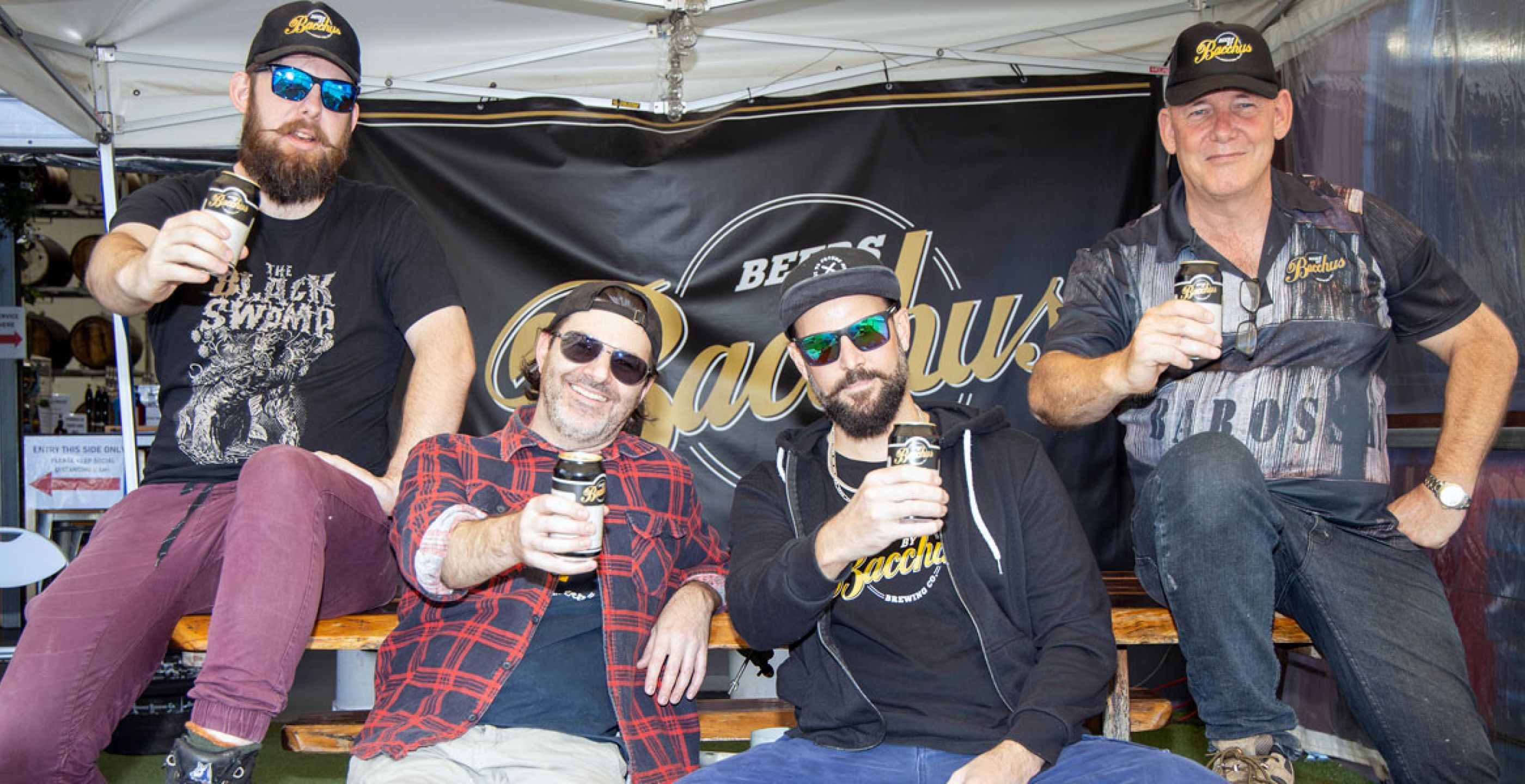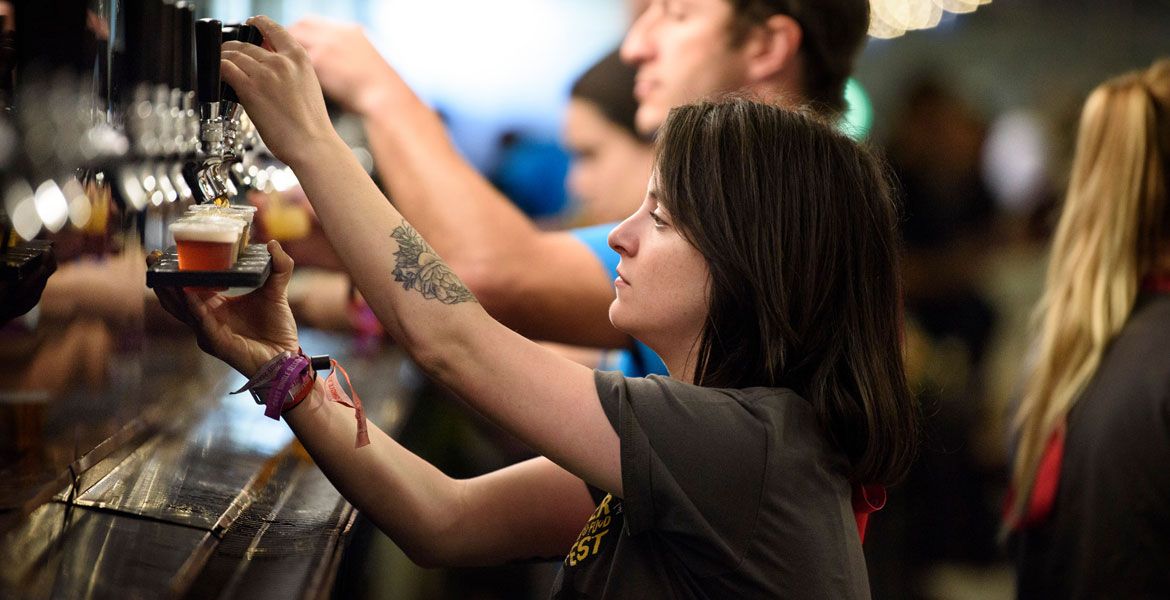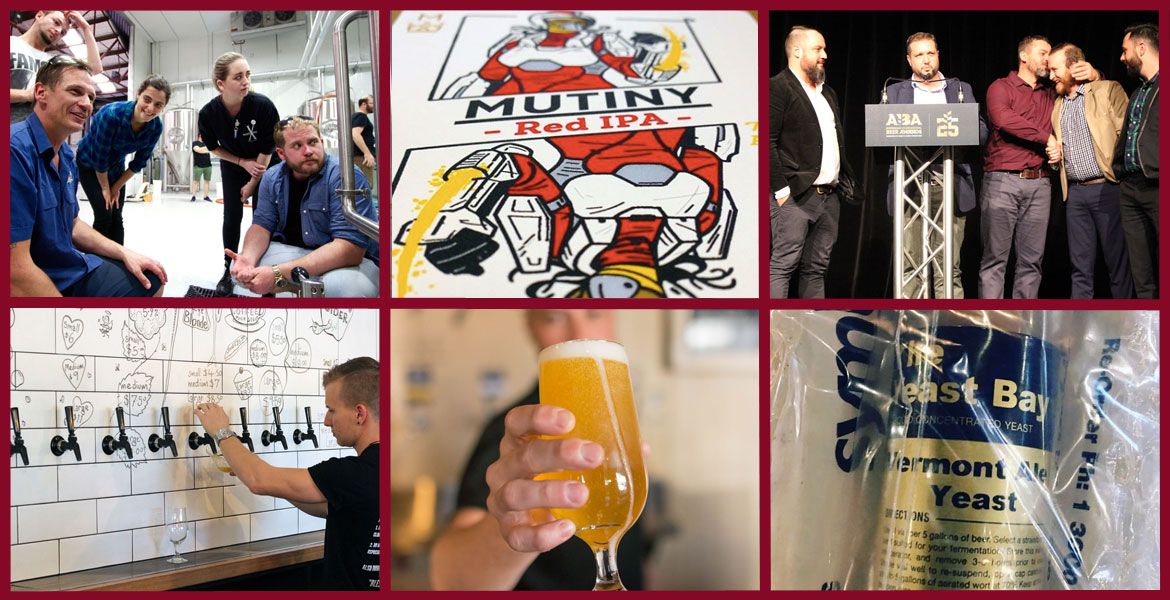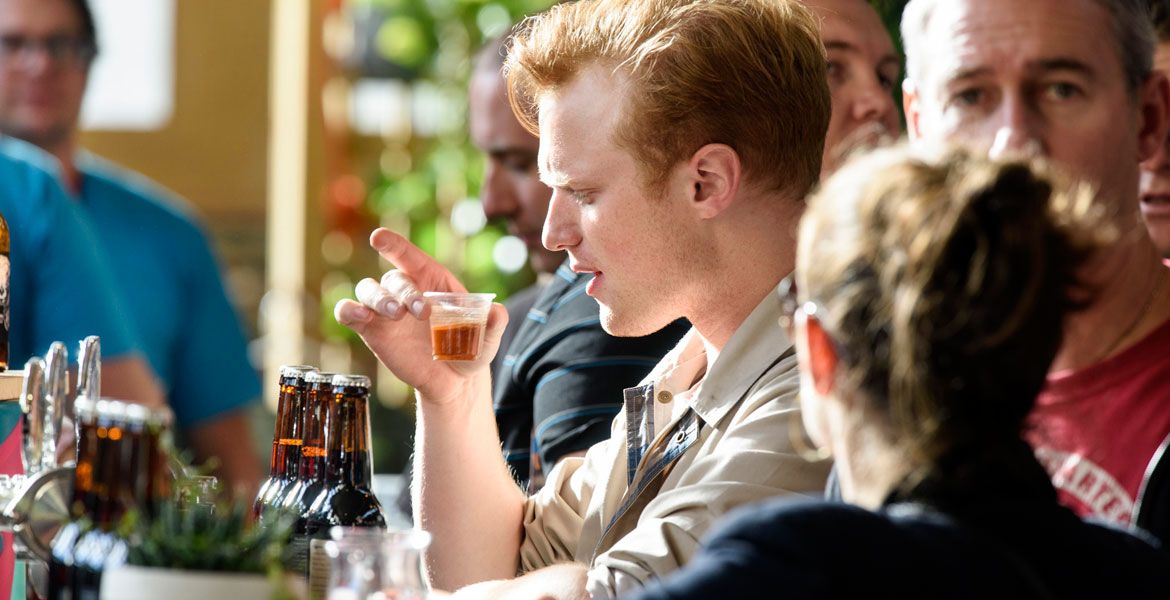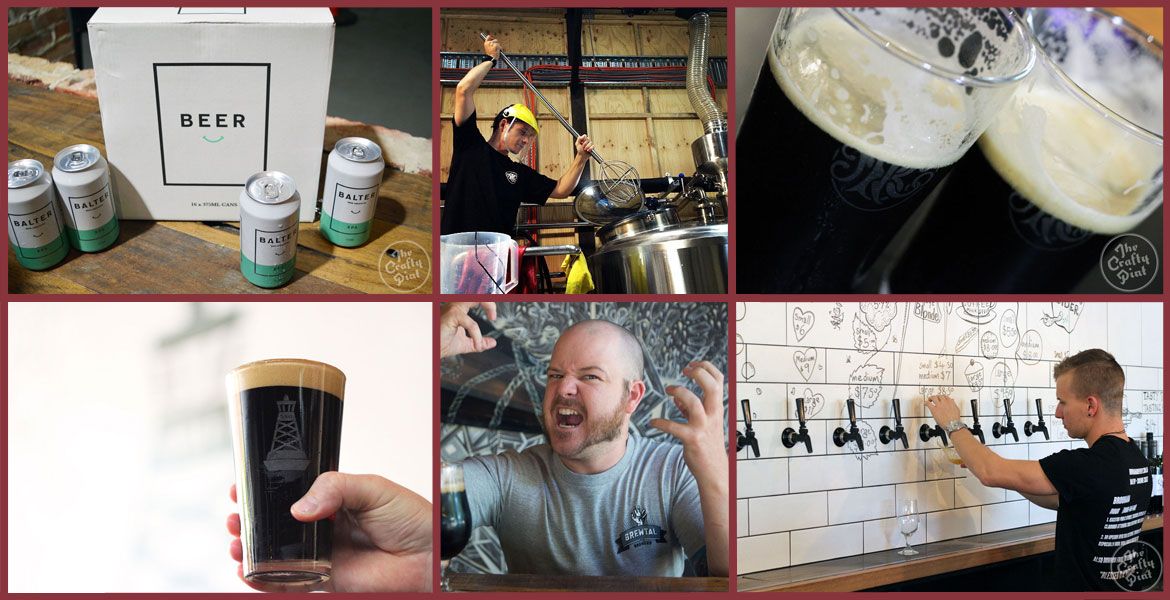SKUmageddon. Hype beers. Box ticking. The bastardising of classic styles. The death of the core range. Unlimited limiteds.
Call it what you want, but what's not up for debate is that Australia’s beer world has never seen such a constant stream of new. Not just new, either, but increasingly out there, outrageous and outside any concept of what beer was just a decade ago.
GABS and its festival beers have played a part in this change, albeit one that's a global phenomenon rather than unique to Australia, as has the growing role of social media. Yet you could also take a look at what's been going on at a small brewery in the Brisbane suburb of Capalaba for a decade and see something of a precursor for this focus on limited releases and wild experimentation.
Bacchus have been brewing new beers – founder Ross Kenrick (above right) says they're up to around 2,000 unique releases – longer than most; head into the Capalaba brewery and you’ll find somewhere between 60 and 80 unique beers in their fridge augmenting the rotating offering on tap.
They were regularly brewing dessert beers and pastry stouts before craft beer bottleshops started resembling sweet aisles. They released arguably* the country’s first Brut IPA and were barrel-ageing beers in Brisbane well before some of the city’s biggest names in craft beer even opened. They've played with ingredients many wouldn't touch in styles most haven't considered.
As for GABS, Bacchus remains the only brewery to take out the festival's People's Choice Award twice: first in 2013 for their Raspberry and White Chocolate Pilsner; then in 2016 for the Peanut Brittle Gose.
In short, if there’s a new trend in brewing, it’s a safe bet Bacchus will have done it once, if not a few times, before anyone else has given it much thought. Indeed, they've turned releasing many beers at once into an art form: they once debuted fourteen with Back to the Future-related puns as names at one event, for example.
Surveying a contemporary landscape in which his brewery's output no longer looks so outré, Ross suggests the current drive to chase latest hype releases often comes from a desire to connect, a desire COVID-19 and our need to stay apart from each other has only made stronger.
“People are wanting to share experiences because they’re lonely,” he says. “Maybe lonely is too strong a word but they aren’t able to get out and socialise as much.”
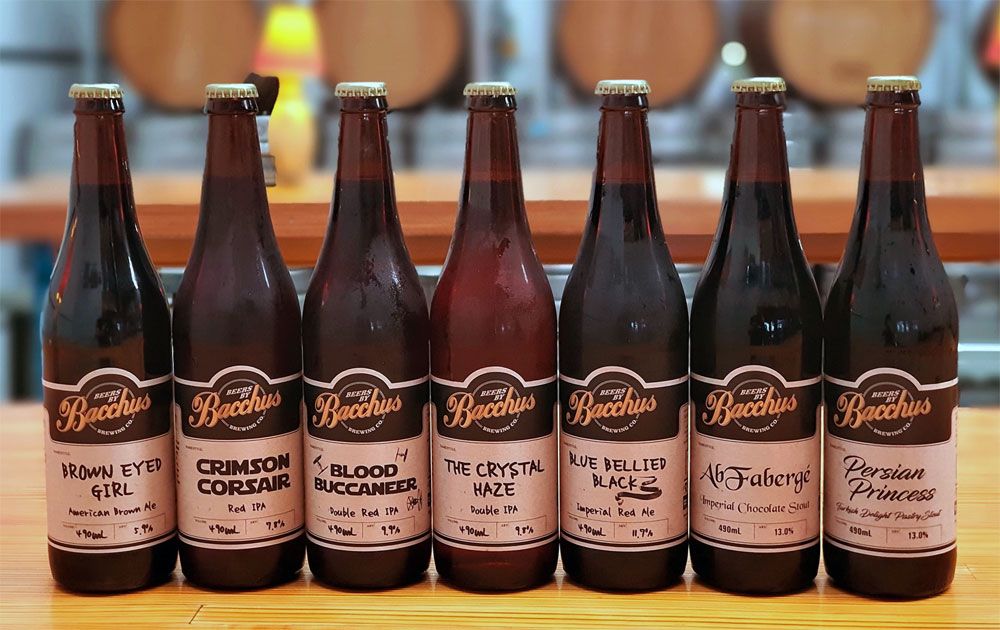
For a brewery that's typically been all over new trends in beer before they've made much of a ripple in Australia (they've even released Triple Ripple – a 10.8 percent ABV imperial gose inspired by ripple fruit cake, of course), there is one trend they've not jumped on, however: cans. But that's all set to change as they look to make the switch next month following the launch of their Back-Us At Bacchus crowdfunding campaign, asking fans to help them buy a canning line in exchange for brewery credits and t-shirts.
It's a move that will see them look to get even more different beers into drinkers' hands as they focus on mixed packs, whether that's putting eighteen single hop IPAs in a single box or a planned release to celebrate the 50th anniversary of Willy Wonka & the Chocolate Factory scheduled for 2021.
“That will no doubt result in an eighteen can release and we just want to do a lot more of that sort of thing,” Ross says.
“There’s probably no one else around who can do the number of small releases that we can, where we are only releasing 200 cartons and that’s it.”
Ross says their ability to recreate so many flavours – they're still brewing two to three new recipes each week even now – is driven by the sheer number of beers they’ve brewed; like chefs, he says his brewers are constantly learning even when beers don’t turn out as expected.
“So we’re only changing little things and we do blend our beers and discover a lot of beers that way,” he says, while describing one brewing failure that seems to capture the Bacchus philosophy.
“We were brewing a Tim Tam beer for the guys down at Grape & Grain for their birthday and, to us, we missed the mark," he says. "But we felt if we added some pure orange zest it would taste just like a Jaffa Cake.
“We could have got away with calling it a Tim Tam but, for us, it’s like calling a dark beer with coconut a Lamington beer – that drives us nuts. A Lamington is a very subtle tasting item and it’s very much about the pastry, a tiny bit of chocolate and the desiccated coconut, and just the way those flavours combine.”
As for the move into cans – complete with a new look for the brewery – Ross says: “We’ve wanted to can for a long time. Unfortunately, canning lines tend to start at above a hundred grand and we have nothing; everything’s invested into the business and we’re not in a position to borrow money from anywhere.”
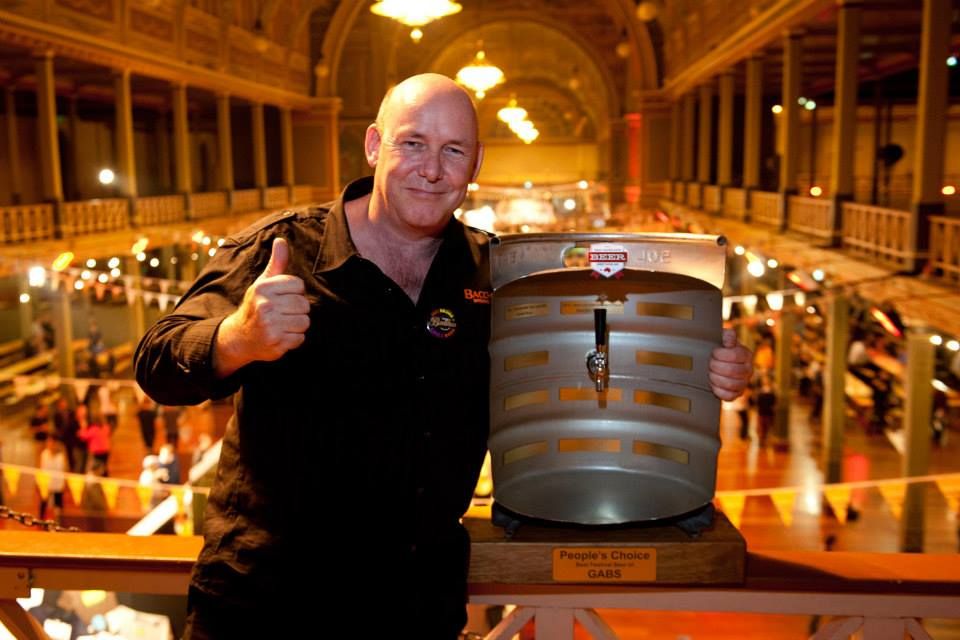
What's more, he says bringing in a mobile canning business wasn't really an option due to the typically tiny sizes of the batches they produce on their equipment: five 50 litre nano setups and one capable of producing 150 litres at a time.
“None of the mobile canning lines will touch anything below around 500 litres,” Ross says. “We want to can 500 or 1,000 litres at a time but it would be ten different beers.”
Pre-COVID, they looked into equity crowdfunding but felt the pandemic’s impact would leave people unwilling to invest in hospitality, hence turning to their fans for support in exchange for beer. It's support that will contribute to the installation of a $40,000 unit from Texan company American Canning that's built for filling from kegs rather than brite tanks.
Though their barrel-aged beers will stay in bottles, Ross says the industry’s shift to tinnies has meant the challenges of sticking with glass are only growing. It's not just retailers moving away from them, he says they’ve struggled to get their hands on their preferred bottles from suppliers.
“It really is the way forward now and a lot of bottleshops won’t even purchase bottles,” he says. “You can’t blame them because they can put twice as many cans on the shelf and they don’t topple over anywhere [nearly] as much”.
The impact of COVID-19 drove home the importance of takeaway to a business where they now see putting more beers into package as the only way to grow sustainably with their taproom largely running at capacity; Ross says the new canning line would allow them to effectively double their output of packaged beers.
What's more, he hopes this will allow them to push their core range a little harder too.
“We really want to increase people coming in to pick up a case of our pale ale or Kolsch that they want to have at home,” Ross says.
“We’ll have eighteen-can cases of our everyday drinkers available that are in line with other microbrewery prices around the area.”
It's quite the contrarian approach in the current climate. So very Bacchus.
The Back-Us At Bacchus campaign is running until October 31 and you can head here to take part.
*After publishing our timeline of Aussie firsts as part of our Ten Years of Crafty coverage, Richard Watkins got in touch to say they'd brewed a Brut IPA called Brute Force in May 2016, some time before the term appeared in public discussion.



